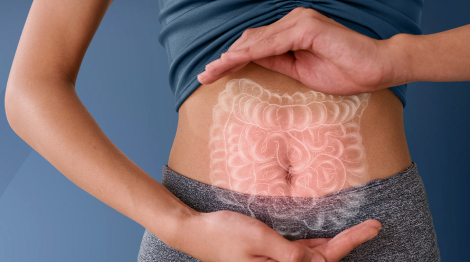SIBO
Evaluation of Small Intestinal Bacterial Overgrowth
Why undergoing this examination?
Small Intestinal Bacterial Overgrowth (SIBO) is a gastrointestinal condition characterized by the excessive growth of bacteria in the proximal portion of the small intestine, leading to inadequate fermentation of unabsorbed carbohydrates. This results in the production of short-chain fatty acids and gases such as carbon dioxide (CO2) and hydrogen (H2). This condition can lead to a series of uncomfortable symptoms, including abdominal distension, flatulence, abdominal pain, and poor nutrient absorption.
Understanding genetics and its influence on predisposition to SIBO and response to food plays a crucial role in this approach. Just as in other health conditions, genetics influences the body’s ability to digest and absorb nutrients, and poor interaction between these factors can trigger excessive bacterial growth in the small intestine.
What is this exam?
The SIBO test is a curve designed to evaluate the concentration of H2 and CH4 in exhaled air at 8 different times after the administration of lactulose, which when fermented by the small intestine, produces gases that partially diffuse into the blood and are excreted by breathing, allowing not only to assess the body’s ability to digest and absorb nutrients but also to identify bacterial imbalances that may be implicated in the symptoms of the disease.
For whom is it indicated?
- Patients with chronic gastrointestinal symptoms such as abdominal distension, excessive flatulence, recurrent abdominal pain, chronic diarrhea, or bloating sensation after meals;
- Individuals with suspected SIBO;
- Patients with underlying medical conditions such as celiac disease, lower esophageal sphincter dysfunction (LES), and those who have undergone previous abdominal surgeries.
Technology
Gas chromatography (Quintron Breathtracker SC, with CO2 dilution correction factor).
SIBO
Evaluation of Small Intestinal Bacterial Overgrowth
Small Intestinal Bacterial Overgrowth (SIBO) is a gastrointestinal condition characterized by the excessive growth of bacteria in the proximal portion of the small intestine, leading to inadequate fermentation of unabsorbed carbohydrates. This results in the production of short-chain fatty acids and gases such as carbon dioxide (CO2) and hydrogen (H2). This condition can lead to a series of uncomfortable symptoms, including abdominal distension, flatulence, abdominal pain, and poor nutrient absorption.
Understanding genetics and its influence on predisposition to SIBO and response to food plays a crucial role in this approach. Just as in other health conditions, genetics influences the body’s ability to digest and absorb nutrients, and poor interaction between these factors can trigger excessive bacterial growth in the small intestine.
The SIBO test is a curve designed to evaluate the concentration of H2 and CH4 in exhaled air at 8 different times after the administration of lactulose, which when fermented by the small intestine, produces gases that partially diffuse into the blood and are excreted by breathing, allowing not only to assess the body’s ability to digest and absorb nutrients but also to identify bacterial imbalances that may be implicated in the symptoms of the disease.
- Patients with chronic gastrointestinal symptoms such as abdominal distension, excessive flatulence, recurrent abdominal pain, chronic diarrhea, or bloating sensation after meals;
- Individuals with suspected SIBO;
- Patients with underlying medical conditions such as celiac disease, lower esophageal sphincter dysfunction (LES), and those who have undergone previous abdominal surgeries.
Gas chromatography (Quintron Breathtracker SC, with CO2 dilution correction factor).
Advantages
SYNLAB GROUP
Guaranteed by the experience of the absolute European leader in laboratory diagnostics.
COMPLETE
Objective and detailed result report.
Additional Information
DOCUMENTATION – Available on SYNLAB Direct for clients
- Clinical Questionnaire;
PREPARATION
- Fasting for 12 hours prior to the examination.
- On the day preceding the examination, avoid consuming foods containing fibers (e.g., fruits and vegetables), starch (e.g., bread, potatoes, cereals, and legumes).
- Only consume meat, fish, eggs, and dairy products.
- Antibiotics should not be taken during the 15 days preceding the examination.
- Avoid taking laxatives for 2 days before the examination.
- Drinking water is allowed during the fasting period and examination.;

Delivery Time
5 business days

Sample Type
Exhaled breath (specific kit provided by SYNLAB).

























